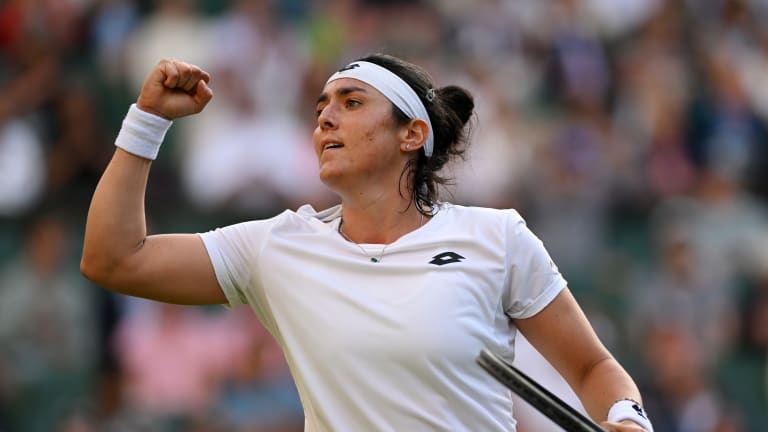Wimbledon
Ons Jabeur finds a way past Marie Bouzkova to reach historic first Grand Slam semifinal
By Jul 05, 2022Wimbledon
Wimbledon to replace line judges with electronic line calling from 2025
By Oct 09, 2024Wimbledon
The amazing journey of Henry Patten from IBM data logger to Wimbledon doubles champion
By Jul 16, 2024Wimbledon
Hsieh Su-Wei, Jan Zielinski win mixed doubles title at Wimbledon
By Jul 15, 2024Wimbledon
Why Wimbledon Endures
By Jul 15, 2024Wimbledon
Novak Djokovic seeks 2024 answers for Alcaraz and Sinner after great effort: 4 ATP Wimbledon takeaways
By Jul 14, 2024Wimbledon
Carlos Alcaraz is a champion establishing how high he will climb with latest Wimbledon title
By Jul 14, 2024Wimbledon
Nicolai Budkov Kjaer makes history in winning junior boys' Wimbledon title; Renata Jamrichova wins girls' title
By Jul 14, 2024Wimbledon
Carlos Alcaraz beats Novak Djokovic again in Wimbledon final for fourth Grand Slam title
By Jul 14, 2024Wimbledon
For Jasmine Paolini, Barbora Krejcikova was one forehand and one serve too good in the Wimbledon final
By Jul 13, 2024Wimbledon
Ons Jabeur finds a way past Marie Bouzkova to reach historic first Grand Slam semifinal
After dropping the opening set on Centre Court, the 27-year-old Tunisian took control of the match to rally past Bouzkova 3-6, 6-1, 6-1 and reach the Wimbledon last four.
Published Jul 05, 2022
Advertising
Advertising

Already the highest-ranked African player ever at world No. 2, Jabeur rallied from a set down to continue her historic run with a place in the Wimbledon semifinals.
© Getty Images